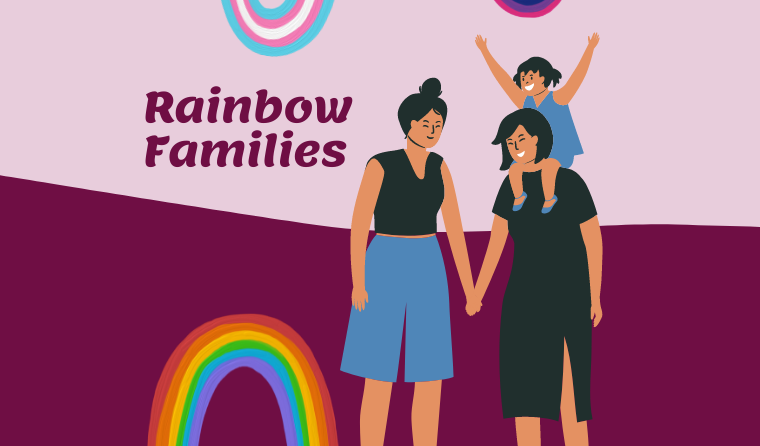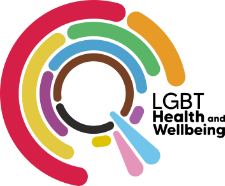The Johnstons: queer parents and the adoptive journey
This is the story of the Johnstons: Nicola, Hailie and Sophie. The challenging journey of Nicola and Hailie through the process of adopting Sophie, and the barriers that queer adoptive parents often face.
Testimonial of a parent using our Rainbow Families services, spoken during the Pink News Edinburgh Summer Reception on Wednesday 29th June.
Content warning: queerphobia and discrimination
Hi, my name is Nicola and due to the pesky COVID I’m flying solo this evening as my wife Hailie is currently at home nursing our daughter Sophie.
We both have experience of working alongside individuals or families who have been impacted by the care system in Scotland in multiple roles. We were both struck by how many children were looking for forever homes across the country and the difficult circumstances which led them to be looked after. We had always wanted a family together and through discussion we agreed that biology was not an important factor when picturing the make up of our family – for that reason we chose to adopt!
Our adoption journey was lengthy and at times grueling to the point where we almost gave up our dream. If it wasn’t for the activities and supports delivered by LGBT Health and Wellbeing throughout our journey, our life would not be as full and fun, as it is today.
Our family life started in 2019, Sophie was a couple of weeks away from her second birthday and had been in care since birth. The beginning of our family life was different than most in that this fully formed toddler with her own likes, dislikes, routines, and personality was thrust into our family home. It was important that there was no expectation on Sophie to “slot in” to our existing way of living, and for us to work together in learning about each other and learning to live with each other, at her pace to support her though her loss and confusion. We were isolated for the first 9 months of Sophie coming to live with us in order to provide ‘funnelling’ a term used to describe the process of helping a child develop a secure attachment to you as their new parent. This involved a significant amount of work but in a short time it was like we had always been a family.
And then, COVID hit. Whilst this provided us with priceless time to grow and learn together as a family at home it also meant a distinct lack of social opportunities for us to meet other families to establish new connections.
When restrictions were lifted, we as queer adoptive parents were surprised at how rare it is to have social opportunities to meet other families with a similar make up. According to Scottish Adoption, in 2020 1 in 12 adoptions in Scotland were to same sex couples and through research it is clear that there is a distinct lack of tailored support for queer adoptive families. We have been fortunate to have some support from the queer community through the limited activities provided by the Rainbow Families group and are able to access training and opportunities through Adoption UK but this is limited.
It is extremely important for us that Sophie has experiences with families that look like hers to help guide her through her own journey of feeling different and negotiating her own identity. We also maintain bi-annual contact visits with Sophie’s birth parents. We feel it is important that Sophie has a relationship with them, so there are no gaps in her building a full sense of self as she grows into adolescence. As far as we are concerned our child can never have enough love, especially when she is so loveable.
What we would like to see going forward istraining to be rolled out within fostering and adoption services forsocial workers, foster carers and panel members to mitigate heteronormative ideals and practices within the assessment and matching processes. Queer applicants are likely to have firsthand experience of negotiating feeling different and embracing their identity, which is a very common challenge for children living with care experience. Having workers be able to look past perceived gender roles and antiquated family values would go a long way. On our journey we were fortunate enough to meet some incredible practitioners, but we did come across some practitioners who were very insular in their criteria for family finding. This meant we were not considered from the outset for a number of matches.
We would like early years educational resources to include representation of diverse family structures for example within Book Bug materials as this will promote diversity and inclusion .
And most importantly we would like regular organised opportunities for queer adoptive families to come together to engage in meaningful activity and to create connections.
In conclusion Our family is just the right amount of mayhem and love! The adoption process has its challenges, as does any conception of a family, but the possibility of being able to give a child love, opportunity and a secure family home far outweighs any ignorance we experienced.

